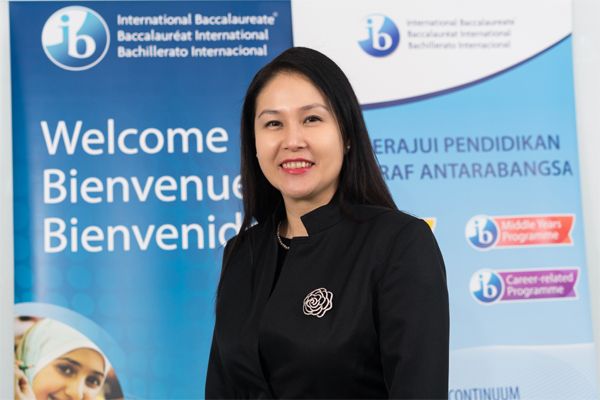
Schools which offer the International Baccalaureate (IB), IB World Schools, all share a common ethos and provide an internationally recognised high standard of education for all students, from age 3 all the way through to grade 12, says Stefanie Leong, Head of Development and Recognition Asia Pacific, IB with an conversation with Elets News Network (ENN).
Choosing a school is a monumental decision, it’s a choice that will ultimately shape a child’s future so it is crucial to be as informed as possible about the options available. What’s important is not just understanding the availability of different qualifications that a student may want to study, but also the school’s ethos, its approaches to teaching and learning and its ambitions for its students.
Schools which offer the International Baccalaureate (IB), IB World Schools, all share a common ethos and provide an internationally recognised high standard of education for all students, from age 3 all the way through to grade 12.
Also read: Computer Science and Information Technology – Differences and Career Paths
Delivered through four unique and academically rigorous programmes, the IB offers a student centric approach which develops independent learners through inquiry-based frameworks and curricula. By providing a solid academic foundation, the IB produces students with transferable, future-ready skills.
A unifying thread throughout IB programmes is the IB learner profile – our organisation’s mission statement translated into a set of learning outcomes for students to develop during their education which is central to the approach of all IB World Schools.
The IB’s aim is to ensure that by the end of their studies learners are: inquirers, knowledgeable, thinkers, communicators, principled, open-minded, caring, risk-takers, balanced and reflective. As a result, IB students are equipped with a variety of vital skills that will help them excel both academically and in life too.
Starting at the beginning of a student’s learning journey, the IB’s Early Years Primary Years Programme (EY PYP) and Primary Years Programme (PYP), for learners aged 3-12 years, begins to build the foundation of the IB learner profile by encouraging student agency and has the central premise that young learners are competent and have valuable ideas to shape their own learning.
This continues through the Middle Years Programme (MYP), for learners aged 11-16, and is delivered through a framework that champions critical thinking and flexibility for learning by crossing disciplinary, cultural and national boundaries. The learner profile attributes are further established in the Diploma Programme (DP), for learners aged 16-19, which is one of the reasons it is highly regarded by both local and world’s leading universities. University admissions officers all over the world recognise and value the unique way the DP prepares students for academic success at university, while helping them to become active participants in a global society.
Historically, perceptions of the IB as workload-heavy and a ‘tougher route’ to higher education have deterred some parents and students from considering IB World Schools and the DP in particular. However, with the increased levels of recognition the IB has received from universities in recent years, perceptions continue to change.
Students and parents realise that the IB ultimately develops students who are well practiced in independent learning, having taken responsibility for their learning throughout their school career, some from as young as three years old. This essential skill is highly valued by university admissions teams, as it allows students to ‘hit the ground running’ when they begin their undergraduate studies.
Stefanie Leong <stefanie.leong@ibo.org>






















